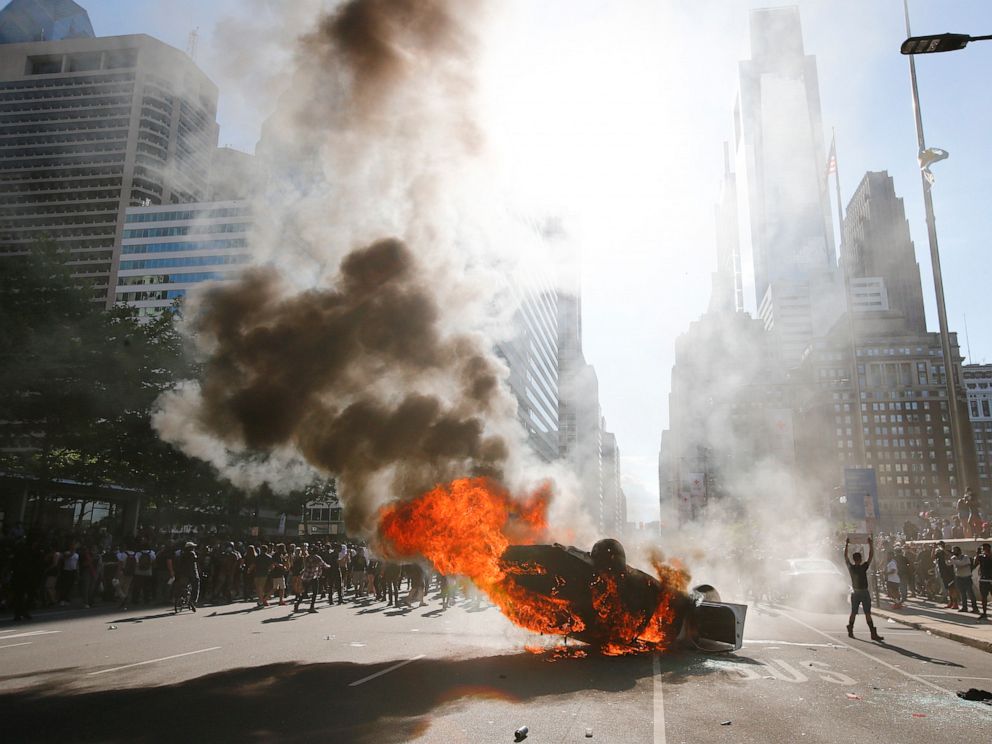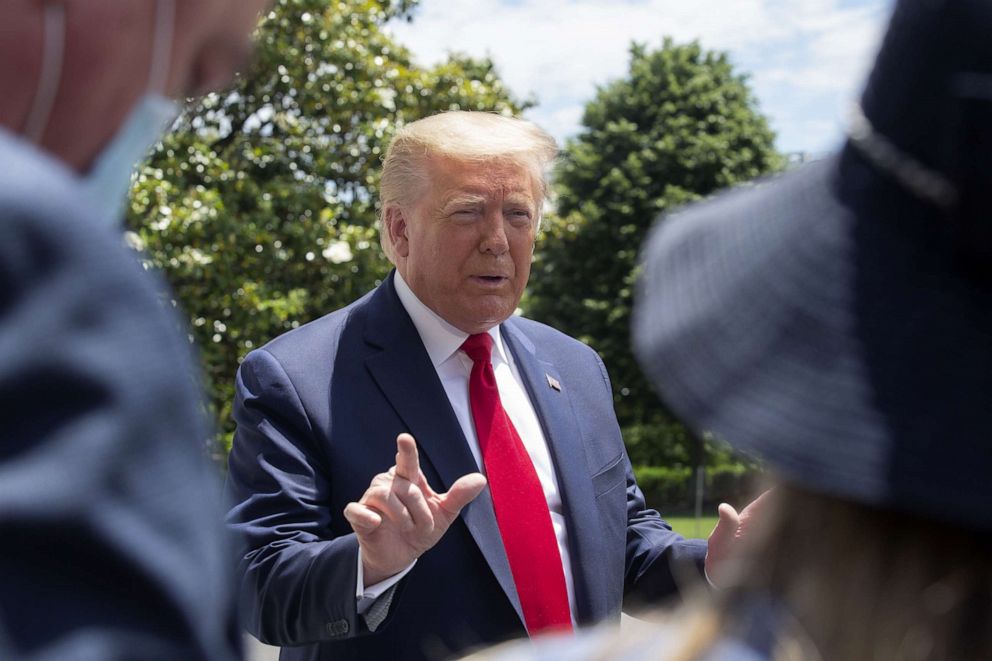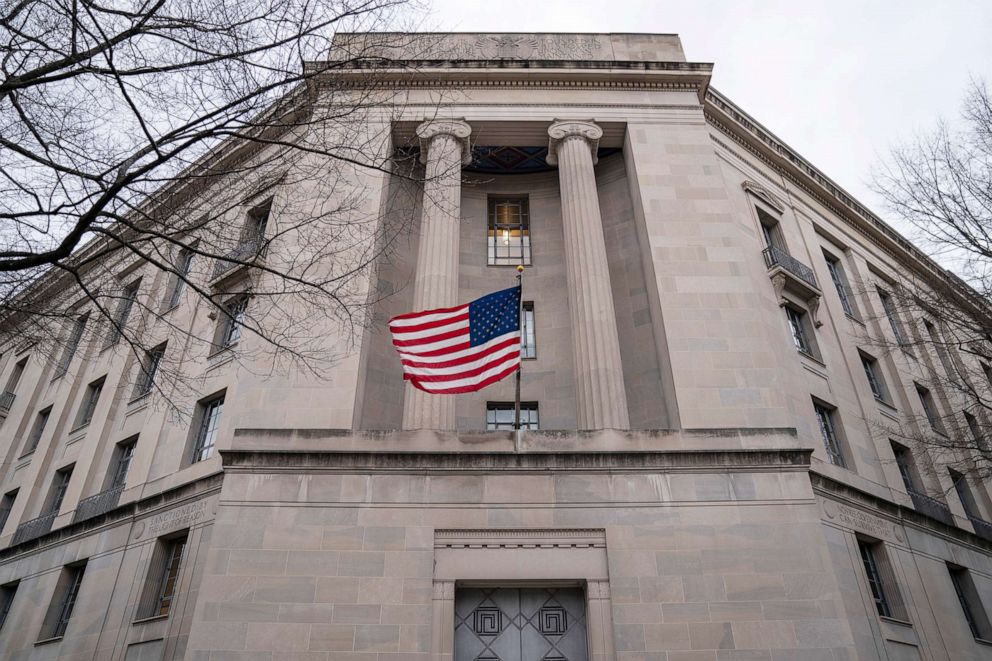Trump vows to designate antifa a terrorist group. Here’s why DOJ officials call that 'highly problematic'
The Justice Department has been grappling with the issue for years.
As fits of violence overshadowed peaceful protesters seeking justice for George Floyd, the black man who died after being kneed on the neck by a Minneapolis police officer, President Donald Trump has claimed that the radical left-wing group antifa is driving the violence.
"The United States of America will be designating ANTIFA as a Terrorist Organization," Trump tweeted on Sunday.
Just hours later, Trump's chief spokesperson, Kayleigh McEnany, vowed on Fox News that -- under a "law and order" president like Trump -- antifa "will be prosecuted as" a "domestic terrorism entity."
But senior officials from within the Justice Department, which would prosecute any such cases, have publicly warned against designating any U.S.-based groups as terrorist organizations, with one senior official telling Congress that such a move would be "highly problematic."
"Both sides of the aisle would share (the concerns)," Bradley Wiegmann, a top attorney in the Justice Department's National Security Division, told the House Homeland Security Committee during a hearing last year.

In particular, current and former government officials have repeatedly worried that officially designating a U.S.-based group as a terrorist organization could have significant First Amendment consequences.
The First Amendment protects the rights of Americans who like spewing "hateful speech" and "assembling with others who share the same hateful views," so "unless an organization engages solely in unprotected activity, such as committing crimes of violence, any designation of a (U.S.-based) organization as a terrorist organization … would likely run afoul of the First Amendment," Mary McCord, the former head of the Justice Department's National Security Division, told a House panel in January.
Such free speech concerns aren't implicated when dealing with groups based abroad, such as ISIS or al-Qaida. After all, foreigners outside of the United States are not protected by the First Amendment.
"Designating domestic groups as 'domestic terrorist organization' and picking out particular groups that you say disagree with their views and so forth is going to be highly problematic, in a way that's not when you're designating al-Qaida or ISIS or an international terrorist organization," Wiegmann said last year.

In promising to designate antifa as a terrorist organization and to pursue prosecutions, the Trump administration has not made clear what statutes it might use or how it would actually define an antifa member.
FBI Director Chris Wray underscored the complexities during testimony before Congress last year.
"For us, antifa (is) more of an ideology than an organization," he said. "We don't think of antifa so much as an organization."
When it comes to ISIS and other international groups designated as terrorists, U.S. terrorism statutes make it a crime to provide them with "material support" -- such as money or even one's own person. That's how so many Americans who fled the United States to join ISIS in Syria or elsewhere were eventually charged and arrested by the FBI.
But no such "material support" statute exists for a U.S.-based group.
After last year's deadly assault inside a Walmart in El Paso, Texas, many Democratic lawmakers called for certain white supremacist groups to be designated as domestic terrorist groups. At the time, Justice Department officials explained their concerns.

In many cases, though, federal authorities have used other U.S. laws, including weapons-related charges and hate-crime statutes, to prosecute so-called "domestic terrorists."
In a statement Sunday addressing the unrest sparked by Floyd's death in Minneapolis, Attorney General Bill Barr said, "The violence instigated and carried out by antifa and other similar groups in connection with the rioting is domestic terrorism and will be treated accordingly."
Barr's statement did not say that antifa would be designated as a domestic terrorism organization.
Nevertheless, antifa followers, white supremacists and other "domestic terrorists" can currently face terrorism charges if they use or attempt to use a homemade bomb.
Federal terrorism statutes make it a crime for anyone -- affiliated with a group or not -- to use or attempt to use a weapon of mass destruction, including an explosive device.
ABC News' Alexander Mallin contributed to this report.




